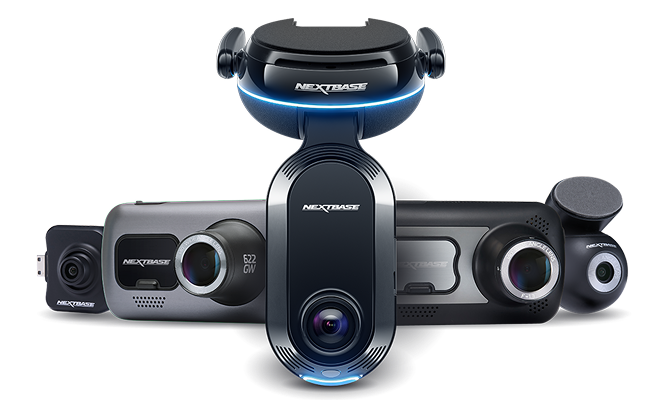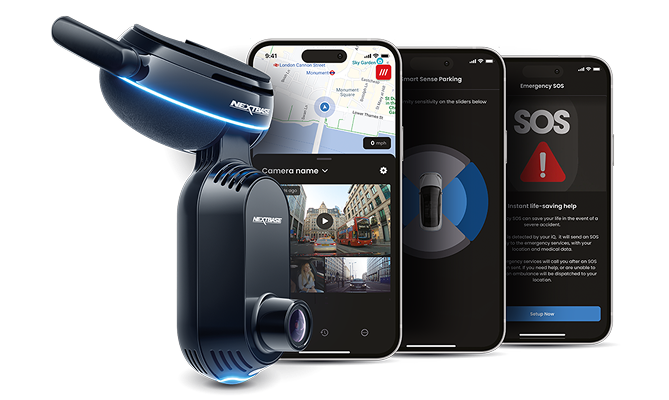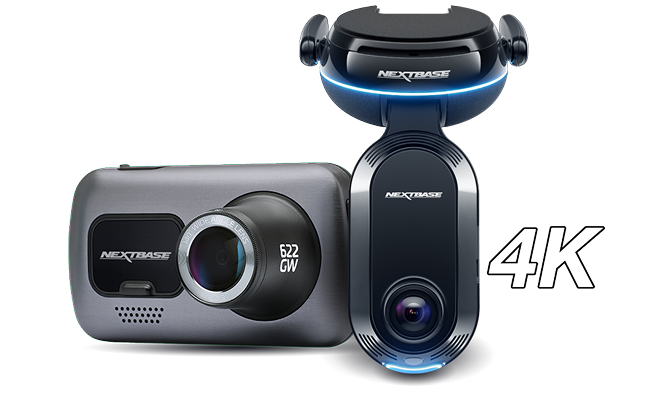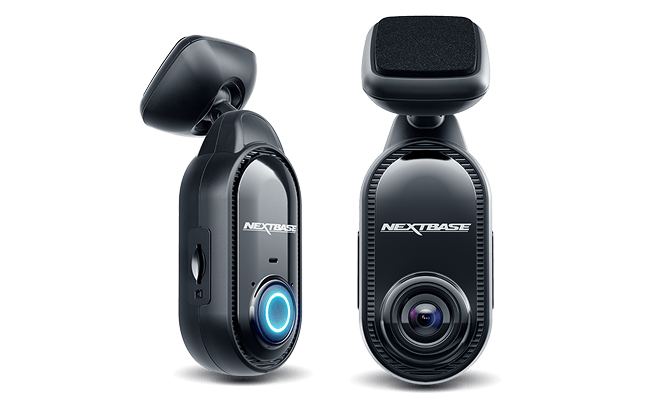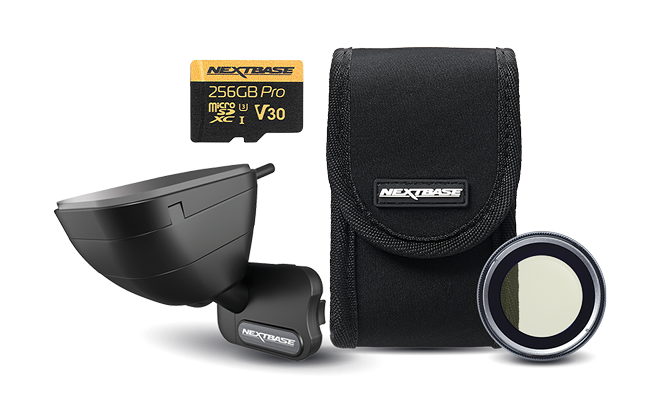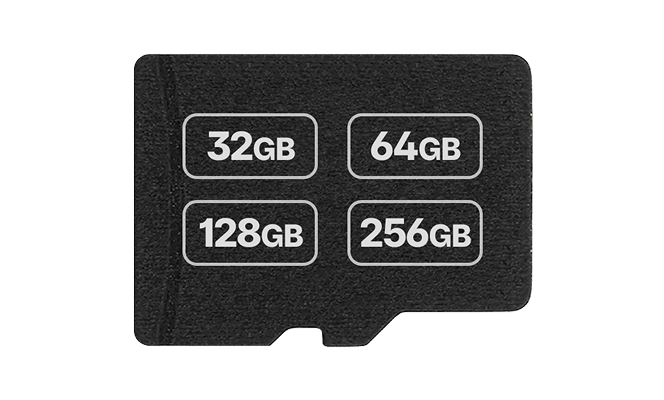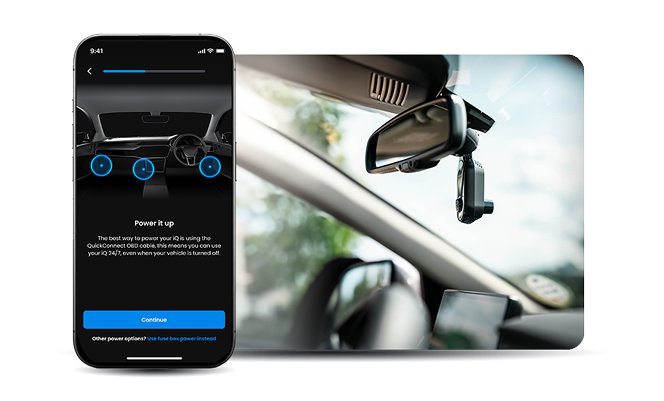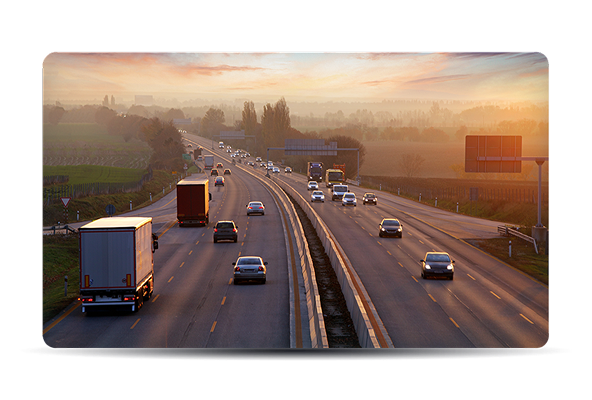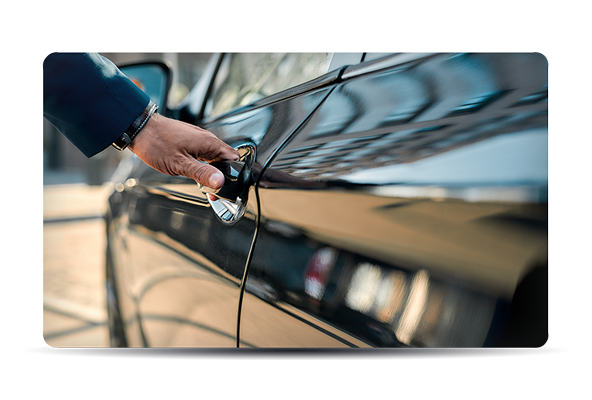If you’re thinking about installing a dash cam in your vehicle, you might be wondering - are dash cams legal? While they are legal to have in your car on the road, restrictions affecting legal dash cam installation and placement vary from state to state.
Certain jurisdictions in the U.S. have restrictions intended to prevent any obstruction of the driver’s view of the road, which impacts where your dash cam can legally be placed on the windshield. In certain states, there are regulations around whether you can record passengers without their consent — especially when it comes to audio recordings. This is something fleet and taxi drivers would have to consider.
It goes without saying dash cams are a great way to improve the security of motorists on the road. As the popularity around the use of dash cam footage grows — whether that’s to provide evidence if an incident takes place or to prevent fraudulent claims — it is highly unlikely drivers would be pulled over because of a dash cam.
A great example of the increasing support from law enforcement can be heard during a recent segment featuring Nextbase with Daily Mail TV, where former NYPD Lieutenant Darrin Porcher commented: “You’ve heard the term a picture is worth a thousand words, well a video is worth a million words.”
However, you may be more likely to be pulled over if the dash cam is mounted in an area of the windshield that obstructs the view of the road for the driver.
There is no law that forbids a driver from installing a dash cam in their vehicle, but we recommend that all U.S. motorists research their state’s laws before mounting a dash cam to ensure that it meets legal requirements.
Are dash cams legal? While Dash Cams are legal to have in your car on the road, restrictions affecting legal Dash Cam installation and placement do vary from state to state. Certain jurisdictions in the U.S. have restrictions intended to prevent any obstruction of the driver’s view of the road, which impacts where the Dash Cam can legally be placed on the windshield. In addition, certain states have stipulations around consenting parties with surveillance and privacy if audio is used with Dash Cams.
Ultimately it is undeniable that Dash Cams are a great way to improve the security of motorists on the road, and as the popularity around the use of Dash Cam footage grows with law enforcement and insurers in helping provide irrefutable evidence in the event of an incident, it is highly unlikely drivers would be pulled over unless the Dash Cam is mounted in an area of the windshield that obstructs the view of the road for the driver. A great example of the increasing support from law enforcement can be heard during a recent segment featuring Nextbase with Daily Mail TV, where former NYPD Lieutenant Darrin Porcher commented: “You’ve heard the term a picture is worth a thousand words, well a video is worth a million words.”
There is no law that forbids a driver from installing a Dash Cam in their vehicle, but we recommend that all U.S. motorists research their state’s laws before mounting a Dash Cam to ensure that it meets legal requirements.
The benefits of a dash cam
If you’re thinking about installing a dash cam in your car, it helps to know more about the advantages that come with them:
Evidence in accidents
One of the most prominent reasons drivers choose to install a dash cam includes having evidence to use if an incident takes place on the road. Being able to show your insurer or law enforcement who was liable helps claims progress more quickly.
All Netbase models record in high-resolution HD for clarity when you need it most, including the iQ smart dash cam which can record footage in up to 4K.
Prevent fraudulent claims
Similarly, having access to footage of an incident can help prevent you from falling victim to fraudulent claims. Installing a dash cam protects you from false claims being made against you and reduces the risk of insurance premiums rising.
Improves driving behaviour
Installing a dash cam can improve driving behaviour. Drivers become more cautious and follow the rules when they know they’re being recorded. Rear dash cams can be a great addition to your vehicle to prevent tailgating, which often causes accidents.
Fleet management and protection
Dash cams can be a great tool for businesses that need a fleet of vehicles to operate. Dash cams promote driver safety and ensure the driver is adhering to regulations on the road.
Dash cam legality by state
To see if your state applies restrictions to your vehicle, refer to the chart below that breaks down dash cam laws on a state-by-state basis:
| State | Are Dash Cams legal ? | Restrictions | Source |
| Alabama | Yes - There is no law prohibiting Dash Cams | No law prohibiting Dash Cams but window positioning needs to be adhered | Source |
| Alaska | Yes | Legal if positioned correctly and not obstructing drivers view | Source |
| Arizona | Yes | Legal if positioned correctly and not obstructing drivers view | Source |
| Arkansas | Yes | Legal if positioned correctly and not obstructing drivers view | Source |
| California | Yes | Legal with restrictions, surveillance rules | Source |
| Colorado | Yes | Legal with restrictions | Source |
| Connecticut | Yes | Legal if positioned correctly and not obstructing drivers view | Source |
| Delaware | No law prohibiting Dash Cams | No law prohibiting Dash Cams but window positioning needs to be adhered | Source |
| Florida | No law prohibiting Dash Cams | Legal if positioned correctly and not obstructing drivers view | Source |
| Georgia | No law prohibiting Dash Cams | Legal if positioned correctly and not obstructing drivers view | Source |
| Hawaii | Yes | Legal with restrictions | Source |
| Idaho | No law prohibiting Dash Cams | Legal if positioned correctly and not obstructing drivers view | Source |
| Illinois | Yes | Legal with restrictions, surveillance rules | Source |
| Indiana | Yes | Legal with restrictions | Source |
| Iowa | No law prohibiting Dash Cams | No law prohibiting Dash Cams | Source |
| Kansas | No law prohibiting Dash Cams | No law prohibiting Dash Cams | Source |
| Kentucky | No law prohibiting Dash Cams | No law prohibiting Dash Cams | Source |
| Louisiana | Yes | Legal with restrictions | Source |
| Maine | No law prohibiting Dash Cams | No law prohibiting Dash Cams | Source |
| Maryland | Yes | Legal with restrictions, surveillance rules | Source |
| Massachusetts | Yes | Legal if positioned correctly and not obstructing drivers view | Source |
| Michigan | Yes | Legal if positioned correctly and not obstructing drivers view | Source |
| Minnesota | Yes | Legal with restrictions | Source |
| Mississippi | No law prohibiting Dash Cams | No law prohibiting Dash Cams | Source |
| Missouri | Yes | Legal without restrictions | Source |
| Montana | Yes | Legal if positioned correctly and not obstructing drivers view | Source |
| Nebraska | Yes | Legal if positioned correctly and not obstructing drivers view | Source |
| Nevada | Yes | Legal if positioned correctly and not obstructing drivers view | Source |
| New Hampshire | Yes | Legal if positioned correctly and not obstructing drivers view | Source |
| New Jersey | Yes | Legal if positioned correctly and not obstructing drivers view | Source |
| New Mexico | No law prohibiting Dash Cams | No law prohibiting Dash Cams | Source |
| New York | Yes | Legal if positioned correctly and not obstructing drivers view | Source |
| North Carolina | Yes | Legal without restrictions | Source |
| North Dakota | Yes | Legal if positioned correctly and not obstructing drivers view | Source |
| Ohio | Yes | Legal if positioned correctly and not obstructing drivers view | Source |
| Oklahoma | Yes | Legal if positioned correctly and not obstructing drivers view | Source |
| Oregon | Yes | Legal if positioned correctly and not obstructing drivers view | Source |
| Pennsylvania | Yes | Legal if positioned correctly and not obstructing drivers view | Source |
| Rhode Island | Yes | Legal if positioned correctly and not obstructing drivers view | Source |
| South Carolina | Yes | Legal if positioned correctly and not obstructing drivers view | Source |
| South Dakota | No law prohibiting Dash Cams | No law prohibiting Dash Cams | Source |
| Tennessee | Yes | Legal if positioned correctly and not obstructing drivers view | Source |
| Texas | Yes | Legal if positioned correctly and not obstructing drivers view | Source |
| Utah | Yes | Legal if positioned correctly and not obstructing drivers view | Source |
| Vermont | Yes | Legal if positioned correctly and not obstructing drivers view | Source |
| Virginia | Yes | Legal if positioned correctly and not obstructing drivers view | Source |
| Washington | Yes | Legal if positioned correctly and not obstructing drivers view | Source |
| Washington DC | Yes | Legal with restrictions | Source |
| West Virginia | Yes | Legal if positioned correctly and not obstructing drivers view | Source |
| Wisconsin | No law prohibiting Dash Cams | No law prohibiting Dash Cams | Source |
| Wyoming | Yes | Legal if positioned correctly and not obstructing drivers view | Source |
Disclaimer: The legality of mounted devices to motorist’s windshields within each state is subject to change at will. Even if it is legal to use a Dash Cam mounted in the windshield in your state as of today, that could change without notice at any time in the future. Before mounting a Dash Cam to your windshield, you should either consult with a lawyer or continue checking your state’s current laws or statutes around mounting dash cams to your windshield to ensure you are abiding by the law and are not obstructing your view of the road.
General rules on dash cam laws
Dash cam laws tend to differ by state, which can make ownership more confusing. However, dash cams are generally allowed as long as it doesn’t block the driver's view when attached to the windscreen.
There are other factors to consider, like whether it’s legal to record audio in your state. As a rule, it’s typically best to tell your passengers that you have a dash cam installed to reduce the chance of violating local laws.
If you plan on crossing state lines, be aware that you may have to adhere to different laws throughout the journey. Before heading off, make sure you’re aware of the law in each state you’re visiting.
Dash cam laws FAQ
Find out answers to some of the most frequently asked questions around whether dash cams are legal in the US below:
Are dash cams legal in all states in the US?
In general, dash cams are legal in the US, however, there are specific regulations in some states. You must familiarise yourself with the laws in your state to ensure you’re complying with the regulations. Find out whether dash cams are legal in your state with our table above.
Can I record audio with my dash cam?
In terms of audio, laws differ from state to state. In some states, drivers can record audio along with video without obtaining consent. In others, it’s illegal to do this and drivers would have to gain consent from all parties when recording audio on their dash cams.
Are there any restrictions on where I can place my dash cam?
Whilst there is generally no law to dictate where you should place your dash cam, the placement mustn’t obstruct the driver’s view or interfere with the airbag should you need it. Some states may have regulations regarding the use of devices that attach to the windscreen, so you should review local laws to ensure your dash is compliant.
Can footage from a dash cam be used as evidence in court?
Yes, dash cam footage can be used as evidence in court should you need it in the case of accidents or traffic violations. It can also be used to send to your insurer as a way of progressing claims and helping to prove liability.
Do I need to notify passengers that I have a dash cam in my vehicle?
Whilst this may not be necessary in some states, it’s always best to communicate with passengers to let them know you have a dash cam. This is important if you’re using a dash cam in a fleet vehicle or taxi so passengers are aware that you have footage of them.
Can I be prosecuted for using a dash cam?
Whilst you can’t be prosecuted for having and using a dash cam, you can be prosecuted for not obeying state-specific laws.

